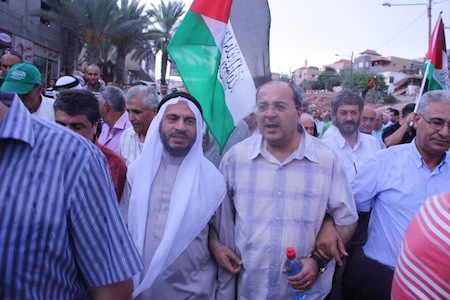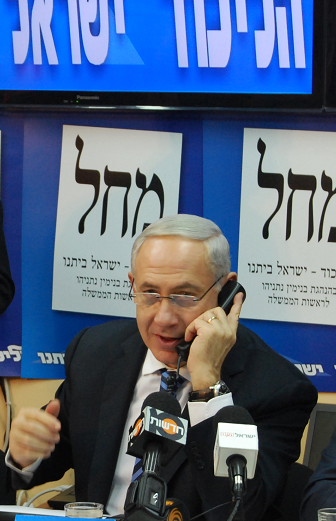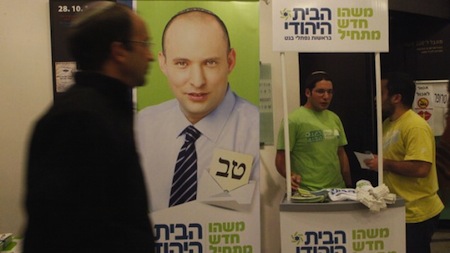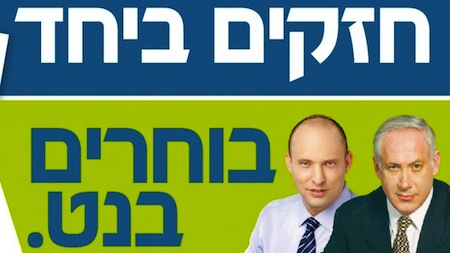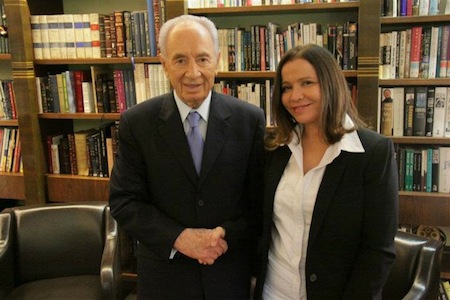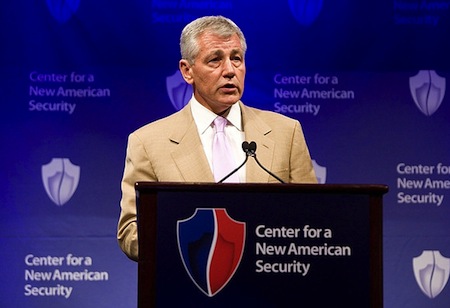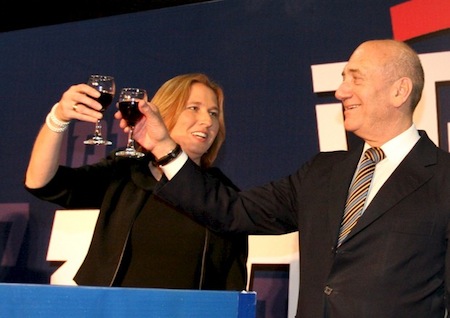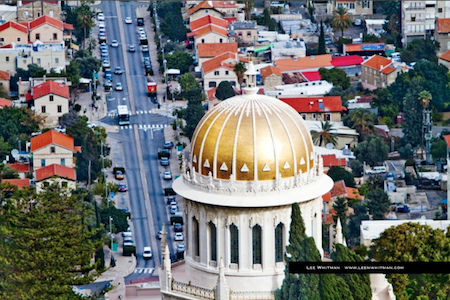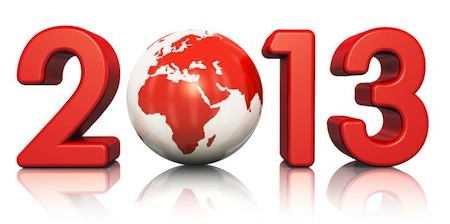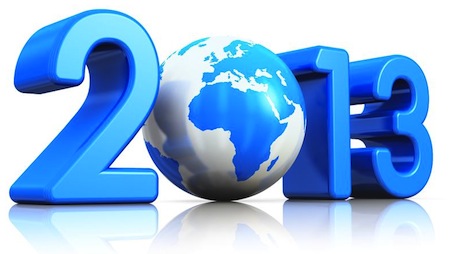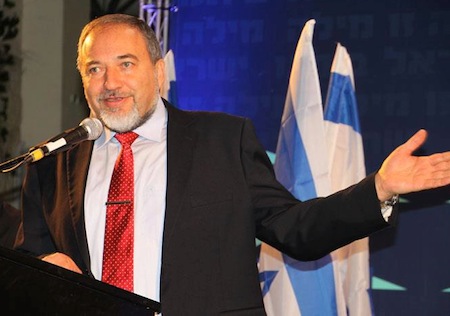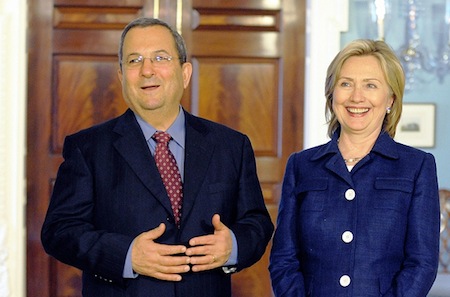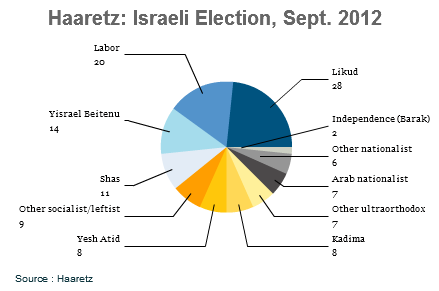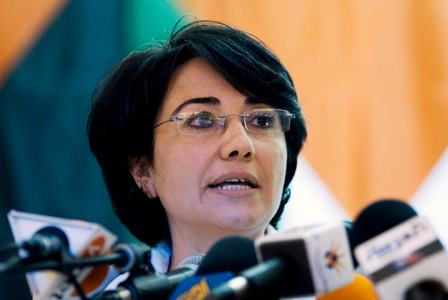
Residents of the Palestinian Territories cannot participate in today’s Israeli election, but over 1.5 Israeli citizens, nearly 20% of the Israeli population, are Arabs — although largely Palestinian by nationality, they are Israeli by citizenship. They comprise nearly 70% of the large northern Israeli city of Nazareth, and they’re a growing demographic within Israel. ![]()
The three main Arab parties currently hold 11 seats, just under 10% of the Knesset (הכנסת), Israeli’s unicameral parliament, and they are expected — just narrowly, perhaps, to each win more than 2% of the vote in today’s election, thereby enabling them to win seats in the Knesset under the proportional representation electoral rules.
So long, at least, as Arab apathy doesn’t diminish their share of the vote.
Regardless of the outcome, none of the Arab parties will be entering any governing coalition anytime soon.
In the earliest days of Israeli statehood, David Ben-Gurion and the more socialist Israeli leaders of the 1950s and 1960s routinely included the small Arab parties of the time in coalitions headed first by the Mapai movement and, thereafter, the Alignment that eventually morphed into the Labor Party (מפלגת העבודה הישראלית).
Fast-forward a half-century later, however, and Israel’s small Arab parties have not only become marginalized, but nearly toxic coalition partners for anyone — Zionist, religious or secular; right, center or left.
All three parties support an end and evacuation of Israel’s settlements, the right of return for Palestinian refugees and the establishment of a Palestinian state. They include:
- Hadash (الجبهة or חד”ש, ‘New’), technically a socialist joint Jewish-Arab party formed in 1977, with its roots in the Israeli Communist Party is the oldest of the three main parties with significant Arab representation, and it has run jointly with the other two parties in previous elections. Its leader is Mohammad Barakeh, an MK since 1999 who gained some admiration among Jewish voters for a visit to Auschwitz in 2010. Although most of its support comes from Arab voters, among its most prominent leaders is Dov Khenin, an MK since 2006 and a prominent Jewish radical leftist intellectual.
- Balad (التجمع الوطني الديمقراطي, ‘Country or Nation,’ or ברית לאומית דמוקרטית, ‘National Democratic Assembly’), formed in 1995 by Azmi Bishara, is both more secular and more centrist than Hadash. Bishara, who was elected as an MK in 1996, fled Israel in 2007 after Israeli police questioned him for aiding Hezbollah during the 2006 Israeli war in Lebanon (the Knesset passed a law in 2011 — the ‘Bishara bill’ — that stripped him of his parliamentary pension). Balad is anti-Zionist in that it opposes the idea of Israel as a Jewish state, preferring a multinational state. Its leader, Jamal Zahalka, an MK since 2003, has been overshadowed in the campaign by Haneen Zoabi (pictured above, bottom), herself an MK since 2009.
- United Arab List (لقائمة العربية الموحدة or רשימה ערבית מאוחדת) and Ta’al (لحركة العربية للتغيير or תנועה ערבית להתחדשות, ‘Arab Movement for Renewal’) comprise a coalition since 2006 of two Arab parties, the former created in 1996 by the Islamist movement in Israel and the latter a more secular party also formed in 1996. The group attracts much of the support of the nomadic Bedoin community, which represents nearly 30% of all Israeli Arabs. It’s led by Ahmad Tibi (pictured above, top — the man not wearing a keffiyeh), an MK since 1999, but also previously a former advisor to Yasser Arafat, former president of the Palestinian Authority, who represented the Palestinians during the 1998 Wye River negotiations with Israel.
Israeli law guarantees equal rights to all of its citizens regardless of religion, though most Israeli Arabs are exempt from the national compulsory service in the Israeli Defense Forces. But many Israeli Arabs nonetheless report feeling like second-class citizens in a country that defines itself first and foremost as a Jewish state, and Arab-based parties have struggled in the past just to make the ballot.
Notwithstanding a large amount of sympathy for and solidarity with the residents of the Palestinian territories, many Israeli voters are more concerned with their own opportunities as Israeli citizens within Israel’s borders.
It’s not an overstatement to say that the status of Israel’s growing Arab population and their political, civil and economic rights in an officially Jewish state remains one of the trickiest existential issues for Israel as a nation — and that would be the case even in a world with a fully sovereign and friendly Palestinian state. Continue reading Israel’s untouchable parties: Israeli Arab politics in a Jewish state
